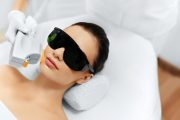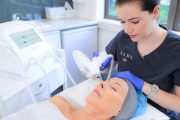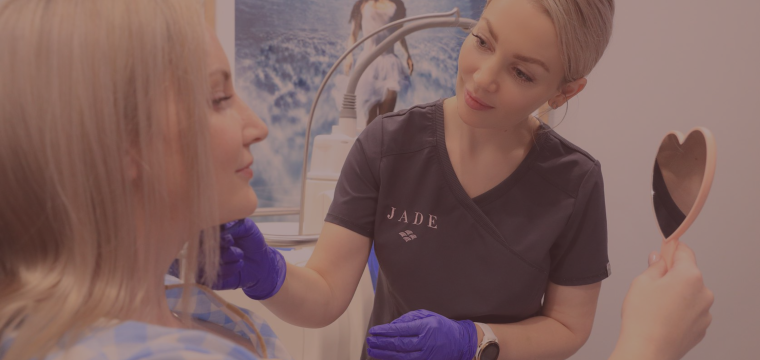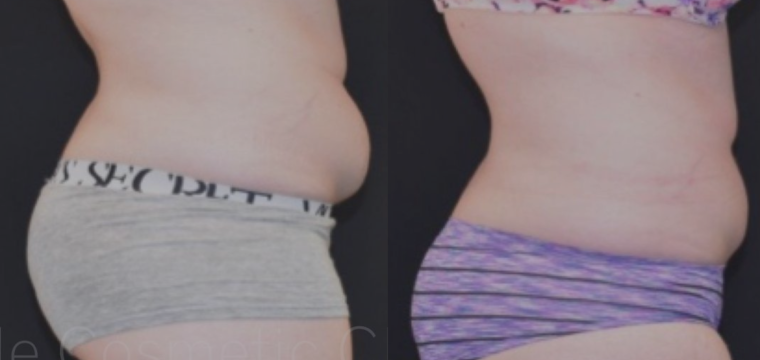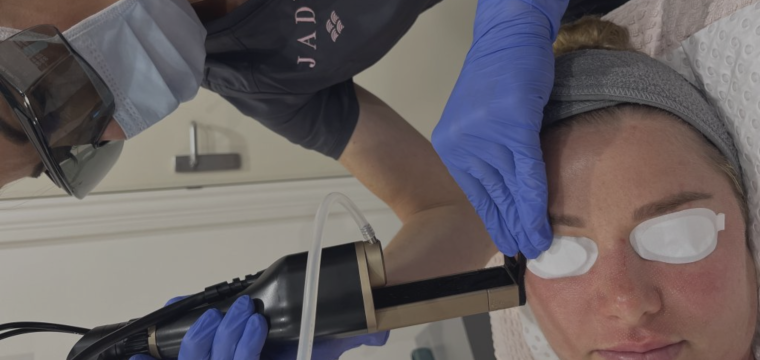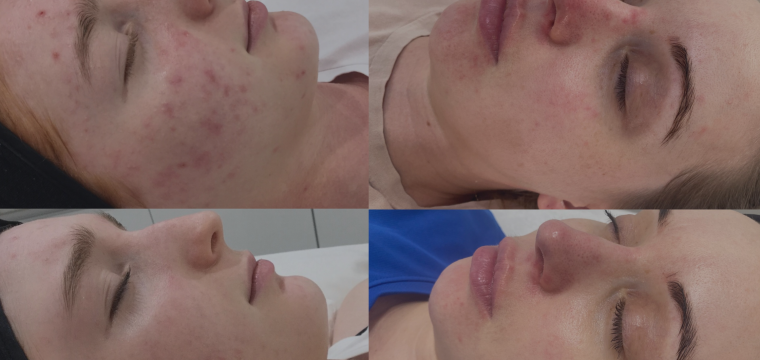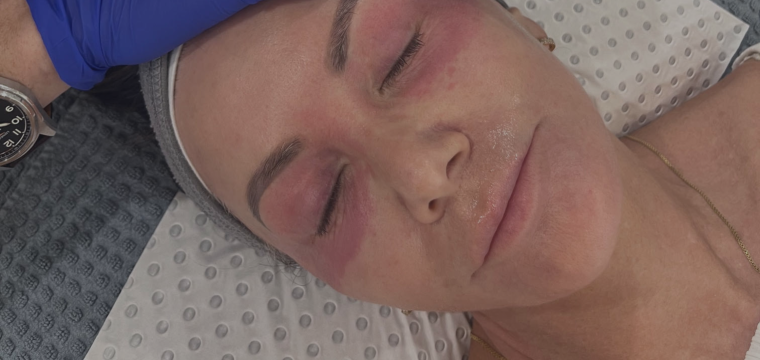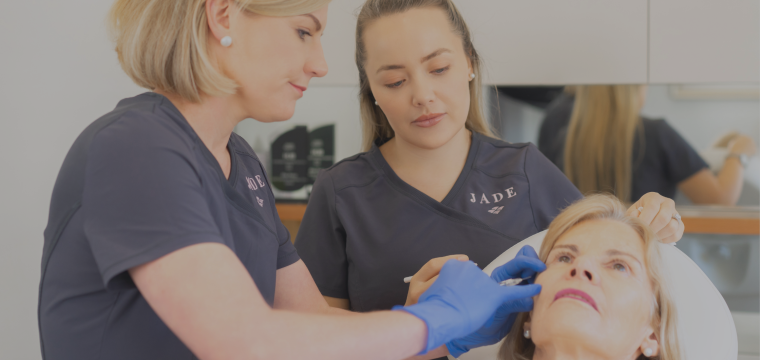Stretch marks (also known as striae) are a common skin condition that can affect anyone but are particularly common in women during pregnancy or periods of rapid weight gain or loss. They can often make you feel self-conscious about your appearance, but the good news is, there are ways to reduce their appearance and make them less noticeable. Below we explore some of the most effective ways of how to get rid of stretch marks.
What causes stretch marks?
First of all, it’s important to understand what causes stretch marks to develop. As the skin stretches, the underlying collagen and elastin fibres can tear, resulting in the thinning of the skin and the development of stretch marks. Hormonal changes during pregnancy, rapid weight gain or loss, and even certain medical conditions can also contribute to the development of stretch marks.
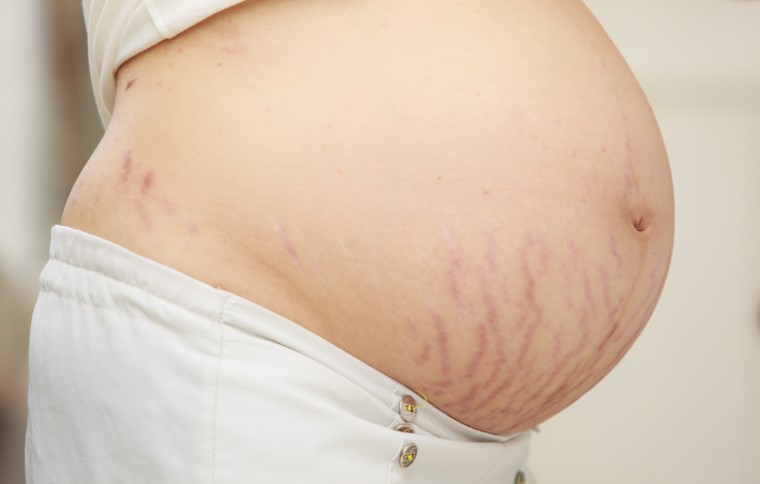
Hormonal changes during pregnancy or rapid weight gain/loss can contribute to the development of stretch marks.
Treatments to rid yourself of stretch marks
Now that we know what causes stretch marks, let’s talk about how to get rid of them.
Moisturise
The first step in treating stretch marks is to keep your skin moisturised. Dry skin is more prone to stretch marks, so using a moisturiser regularly can help to keep your skin hydrated and reduce the appearance of stretch marks. Look for moisturisers that contain ingredients such as cocoa butter, shea butter, or coconut oil, which have been found to be particularly effective in reducing the appearance of stretch marks.
Exfoliate
Another way to improve the appearance of stretch marks is through exfoliation. Removing dead skin cells through exfoliation can help to improve the texture and tone of your skin, and encourage new cell growth. You can exfoliate your skin using a gentle scrub or an exfoliating tool, such as a body brush. Just be careful not to overdo it, as exfoliating too often can irritate sensitive skin.
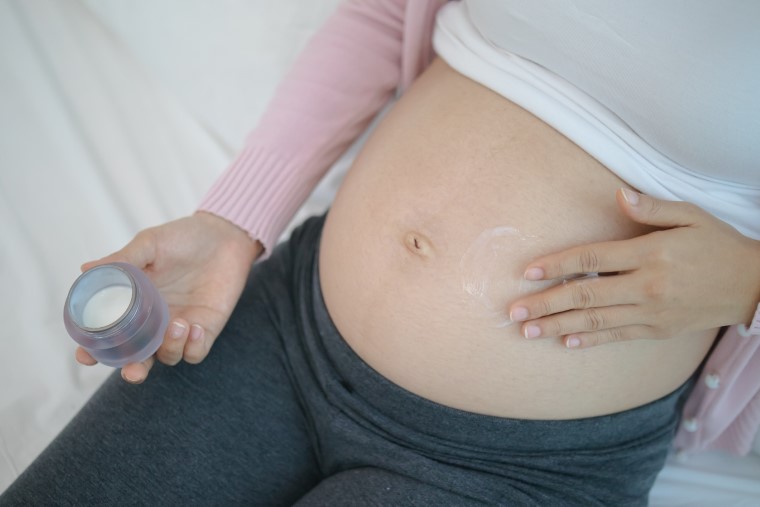
Using a moisturiser regularly will keep your skin hydrated and help to fade stretch marks.
Massage
In addition to exfoliating, massaging the affected areas can also help to reduce the appearance of stretch marks. Massaging increases blood flow to the area, which can help to improve the elasticity and strength of the skin. You can massage the affected area using a natural oil, such as coconut oil or sweet almond oil.
Vitamins
Vitamins A and C are also essential for the health of your skin. They both help to boost collagen production, which can help to improve the elasticity of your skin and reduce the appearance of stretch marks. You can get vitamins A and C from foods such as sweet potatoes, carrots, oranges, and tomatoes. You can also take supplements that contain these vitamins.
Topical creams
Topical creams and gels can also be effective in treating stretch marks. Some creams contain retinoids, which can help to improve the texture and tone of your skin. Other creams contain certain compounds which can help to improve the elasticity of your skin and reduce the appearance of stretch marks.
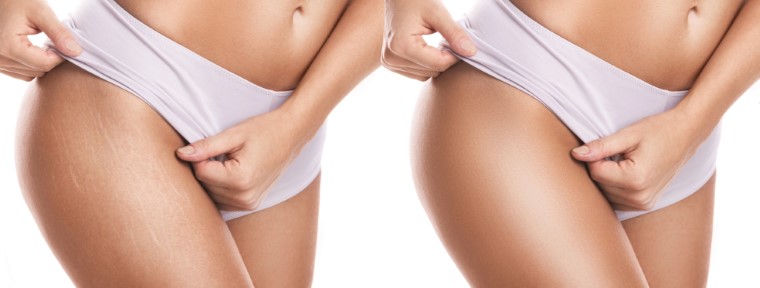
Stretch mark removal treatments such as laser therapy and RF microneedling can treat stretch marks.
Silicone gels
Silicone gels and sheets are also popular for treating stretch marks as they can create a protective barrier on the skin, which can help to improve the texture and tone of the skin and reduce the itching and discomfort associated with stretch marks. But, be sure to check with your doctor before using any creams, especially during pregnancy or breastfeeding.
RF Microneedling and Laser therapy
In more severe cases of stretch marks, or for early stretch marks, laser or microneedling treatments may be a better option. Both RF microneedling and laser therapy stimulate collagen production, which can help to create firmer skin and improve skin texture in stretch marks.
If you do develop stretch marks, it’s important to remember that they’re a common skin condition and nothing to be ashamed of. With the right treatment and care, you can reduce the appearance of stretch marks and improve your skin tone and texture. So don’t let stretch marks hold you back from feeling confident in your own skin!
Can you prevent stretch marks?
Yes, there are a few ways that you can help prevent stretch marks. One of the best ways is to maintain a healthy weight. Rapid weight gain or loss can cause the skin to stretch, which can lead to the development of stretch marks. If you’re pregnant, it’s especially important to maintain a healthy weight and avoid gaining too much weight too quickly.
Another way to prevent stretch marks is by staying hydrated. Drinking plenty of water can help to keep your skin hydrated and improve its elasticity, which can make it less likely to develop stretch marks. It’s also important to keep your skin moisturised, even when you’re not pregnant or trying to lose weight. Moisturising your skin regularly can help to improve its elasticity and make it less prone to stretch marks.
How to book a consultation at Jade Cosmetic Clinic
To enquire about our strecth marks treatment or for more information you can contact us online or call us on 1300 060 644. Or if you know what treatment you’d like and you’re ready to book a consultation with us, you can fill out our online booking form.
FAQs
Below you can find more FAQs about how to get rid of stretch marks:
How common are stretch marks?
Stretch marks are a very common skin condition, affecting as many as 90% of people. They can occur in anyone but are particularly common in women during pregnancy, people who have experienced rapid weight gain or loss and those who have certain medical conditions that affect the skin’s elasticity. People who have a family history of stretch marks may also be more likely to develop them.
How long before stretch marks fade?
The length of time it takes for stretch marks to fade can vary depending on several factors, including the cause of the stretch marks, their location, and the person’s skin type. In general, newer stretch marks (which tend to be red or purple) can take several months to a year to fade, whereas older stretch marks (which are usually white or silver), may take longer to fade and may not completely disappear.
Do laser treatments for stretch marks hurt?
The pain can vary depending on the specific laser used and your pain tolerance. Some laser treatments are relatively painless and only produce a mild sensation of heat, while others may be more uncomfortable and require a numbing cream to minimise discomfort.
How do stretch marks affect my body?
Stretch marks don’t have any significant effect on your overall health, but they can affect your self-esteem and body image. They can be unsightly and make you feel self-conscious about their appearance which can lead to a lack of confidence and self-esteem. However, in some cases, you may experience itchiness or discomfort around the affected area.

